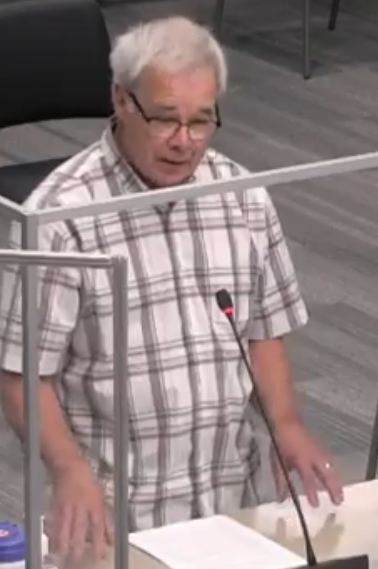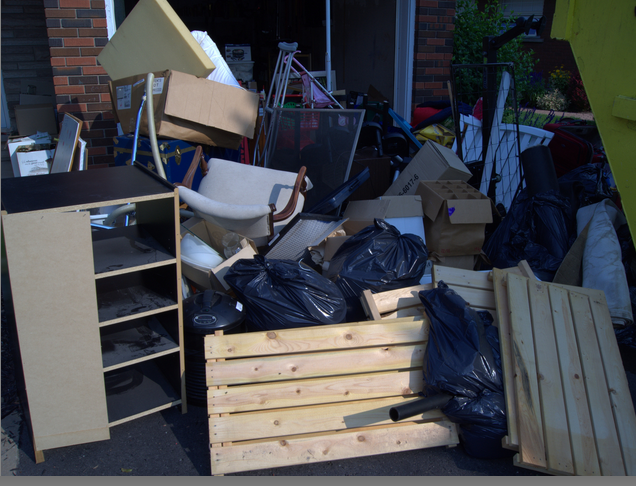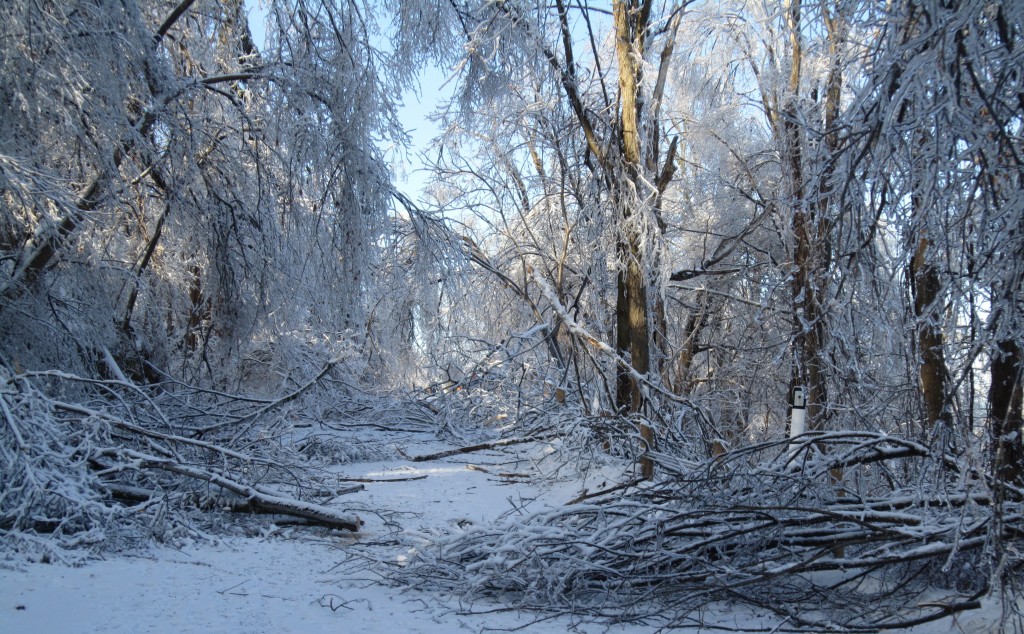 By Lawson Hunter
By Lawson Hunter
July 7th, 2022
BURLINGTON, ON
Lawson Hunter delegated at a Standing Committee earlier today to comment in support of “Climate Resilient Burlington: A Plan for Adopting to Our Warmer, Wetter, and Wilder Weather”. He said:
To my mind, this is one of the best reports I have seen this Council receive this term. I have every confidence that this committee will accept this report. My hope is that you will embrace the messages contained within and set in motion the recommendations with the urgency and the full commitment that they require.
Unfortunately, this report comes at a time when Council is near the end of its term, a ‘near lame duck Council’. Please do what you can to see that this report does not get lost in the transition to a new term and more importantly, that the City implements many, if not all, of the plans of action.

Lawson Hunter: “we easily forget, especially if it doesn’t affect us directly.”
I have delegated to Council on more than one occasion about Mitigating Climate Change. Today, I’m here to say that I’ve turned a corner in my thinking. I still believe in Mitigation but my personal viewpoint is that we need to shift more towards Adaptation.
In 2019, Burlington City Council, along with many other municipalities in Canada, declared a “Climate Emergency”. At the time, the International Panel on Climate Change stated that we had 12 years to ‘mitigate’ climate change. Well, we’ve got 9 years left before we pass the point of no return. Nine years to keep global GHG emissions below 350 parts per million. Sorry to tell you, but we passed 410 ppm a mere four months later. The IPCC (which the report references) told us that we needed to limit average temperature level increases to 1.5 degrees Celsius. We’ve blown past that. We now talk about 2 degrees, or even 3 or 4 degrees by the end of the century.
The dilemma, we face is our brains protect us by pushing those events from the past further and further out of our minds as we tend to focus on our day to day activities. ‘Live in the moment’ our coaches, and trainers, and self-help gurus tell us. Well, we can’t do that anymore. Not when those “climate events” keep coming, more frequently and harder and closer to home.
Sure, Burlington experienced the Ice Storm of 2013 and the Flood of 2014. A year ago, we watched on TV the drought and fire and flood that hit B.C. And in May of this year, less than two months ago, we narrowly missed the Great Canadian Derecho that tore a path of destruction from Windsor to Quebec City. A derecho is when a thunderstorm marries a tornado and creates a hurricane on land.
We, as a global society, recovered from the long list of environmental crises but did we learn anything from them? In her book, “The Devil Never Sleeps: Learning to Live in an Age of Disasters”, Juliette Kayyem says, for the most part we did. She writes, “It isn’t that you can manage a disaster so that no harm will occur, … Essentially, we can learn to fail, more safely.”
My point is, we easily forget, especially if it doesn’t affect us directly. And even if we are affected we, “Pick ourselves up, dust ourselves off, start all over again” as the song says. We take pride in Building Back Better. In a word we become ‘Resilient’.
And that brings me to my one, small uneasiness about this report. Words are important. They can spur us into action or they can lull us into complacency.
For example, in this report the word Resilience is used quite often in place of Adaptation. Resilience is described as “the capacity to recover quickly from difficulties”, or “the ability to cope with and recover from setbacks”, or, “to recover from or adjust easily to misfortune”.

The impact of the 2014 flood on a Burlington basement
Climate Change is neither a difficulty, a setback or a misfortune. It’s a disaster waiting to happen. It’s not a ‘what-if’ scenario. It’s a when-it-will-strike, there will be consequences kind of thing.
The report talks a lot about ‘collaboration’ as if that were a new thing. One has to hope that the City already ‘collaborates’ with entities like Burlington Hydro, Enbridge, the RBG and other stakeholders. I respect that stakeholders were invited to the table, but the collaboration must go further than a dozen or so meetings. It must infuse the landscape. Every organization, every company, every developer, every resident, should ask themselves “Is this the best we can do to respond to a climate change event?” And, “what part can I play after a disaster has impacted my neighbours?” rather than let ‘the City’ clean up the mess.
We are fighting against a system that none of us created. A system of global off-shoring, over consumption, externalities, short-term thinking, a ‘make it-break it-toss it’ society that is leading us over a cliff. Burlington used to be, largely, self-sufficient. Broken global supply chains have shown us that that is not sustainable anymore.
I get it. Your e-mail boxes are over-flowing with residents’ complaints about garbage, about potholes, about not enough ice rinks in the city. But you know what? Those fall into the category of the short-term thinking that got us here.
We, all of us, need to have the courage to say, “Stop it for a moment.” We need to shift our focus to ‘What will the impact of our decisions today, have on future generations?”. I’ve already spoken to Council about thinking, not in 20 years, or 50 years, but using the Indigenous wisdom of ‘seven generations’. In seven generations, 200 years or so, hurricanes, drought, floods, war, famine, will all probably hit Burlington. What will we construct today that will help future generations to Adapt?
We need to commit to the recommendations in this report. We need to set priorities. We need to ensure success by directing enough of the City’s budget now and into the future towards these goals. Let me tell you, it’s going to hurt, but future generations will thank us.
We also need to acknowledge the things that we’ve done wrong, but also what we did right to respond to disasters. We can adapt to a rapidly changing environment. COVID taught us that. Will we heed that lesson?
Biologically speaking, adaptation is “a change or the process of change by which an organism, or species becomes better suited to its environment”. Not us trying to change the environment to suit our needs.
We are heading down the train track and no one’s got their hands on the brake. Here’s an example. And it is in no way a slam against Burlington Hydro. Burlington has experienced 33 power outages since January 1 of this year.

The 2013 ice storm blocked roads for days
My question is – is sixty plus outages acceptable when every house and building could have its own renewable energy source? Is 60 plus outages the new normal that we should expect? Again, I’m not blaming Burlington Hydro – it has to deal with flooding, wind storms, ice build up, drivers knocking down poles, and a few instances of preventative maintenance by the utility. Burlington Hydro is working with a system that was designed in the 1950’s, built in the 60’s and 70’s, and feeding power from a transmission system that was created some 100 years ago. Doomed to fail.
But see, there I go talking about a Mitigation to the climate change problem. It’s difficult to separate the two. We need both courses of Action. I’m here to ask you to take the next 15 or 20 minutes and really concentrate on what this city – not City (with a capital C), but the community of Burlington can do to prepare to ‘fail more safely’ because we will fail when it comes to climate change, it’s almost guaranteed.
I’m not an expert. You’ve got plenty of smart people on staff. You’ve already got a shelf full of reports, and you’ve got partnerships with good organizations with all kinds of environmental experience. What I want to impress upon you is the sense of urgency that I feel.
I don’t want Burlington to just ‘Build Back Better’. We can ‘hope for the best and prepare for the worst’ or we can prepare for the worst and hope that it never comes to that.
Take-aways:
• Don’t be lulled into complacency with aspirations and buzzwords.
• Give all City staff adequate training in first aid and disaster relief.
• Empower employees to assist and support the rest of the community, be it disaster, physical condition, mental health situation, knowing what to do and where to go in an emergency.
• Create more heating and cooling stations, and emergency shelters.
• Make floodplain maps easily accessible and support Conservation Halton’s program and frequency of new maps created.
• Instill a long-term vision in City staff, residents, local employees that we need to work together, support each other, for the common good.
• Work with developers, the largest group of game-changers, to build better, more equitably, and with robust safety features – additional stair egress, adequate fire protection and services.
• Recognize that disaster could happen at any time, in any location, and know how to respond.
• Learn to fail, more safely.



















Living in tthe moment is a very dangerous path as we all should know but more than often tend to ignore. Let’s all think seriously about these words of wisdom and give thanks that Lawson Hunter never gives up on us and will keep telling us the dangerous path we tread., while he holds his breathe and hopes we will change.
An excellent delegation. Let us hope that Council takes it seriously.
Canadians could all live in caves for the next 50 years and it won’t mean a darn thing with China and India (the two largest polluters on the planet) going full steam ahead and building hundreds of “more” coal-fired plants. Why are they always ignored?